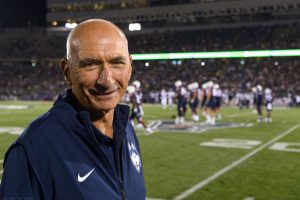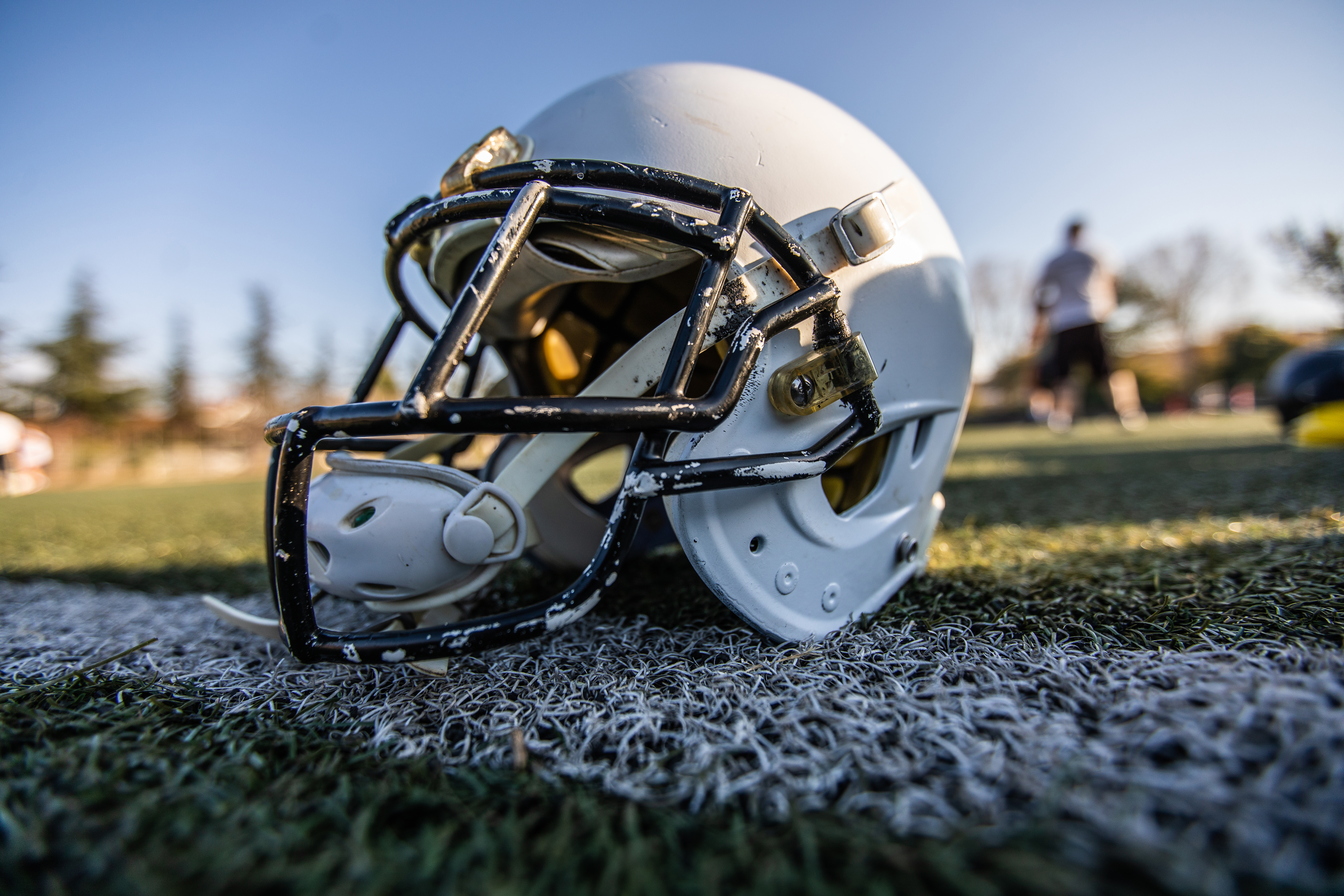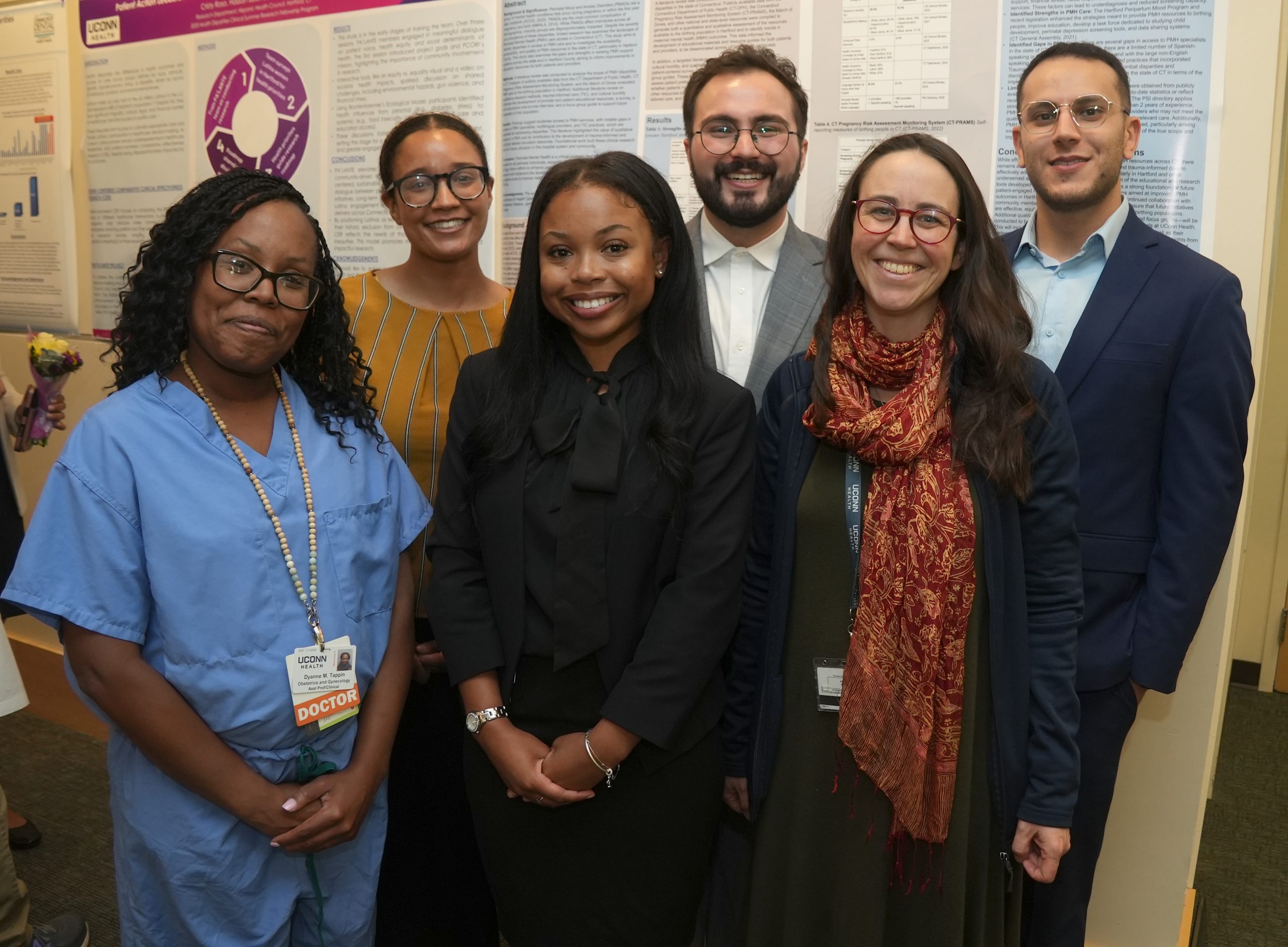With the pandemic possibly having temporarily shifted some of the questions about the safety of football away from concussions, out comes a study of college football players with potentially encouraging – and potentially misleading – results.
The multi-institution research of more than 600 college players who were assessed for concussion found no apparent connection between how young they were when they started playing and their symptom severity or recovery time.
Dr. Anthony Alessi, UConn Health neurologist and director of the UConn NeuroSport program, has some concerns about the unintended message the findings could send to parents and coaches. He has no connection to the study, which was published in the journal Neurology.
How does this affect our understanding of youth tackle football and its potential long-term effects?
Although this is useful information when evaluating a collegiate athlete, I’m afraid that the results may be misinterpreted as that this study is saying that youth football is safe. And this study doesn’t profess that.
It doesn’t look at what happened to you as a youth, it only looks at your current concussion. So it doesn’t take into consideration the severity of a concussion as a child, nor does it take into consideration multiple concussions while playing youth football. So there are too many variables to try to extrapolate and say that that means having a concussion during youth football doesn’t hold you back, because it didn’t look at all the other athletes who had concussions while playing youth football and never made it to college to play football.

You’ve made the point that we have the most medical professionals at the highest levels of competition, when we actually need them most at the lowest levels, when the athletes are at their most vulnerable to a concussion’s effects on their development. How great is the risk of complacency at the level where the exact opposite is needed?
I’ve always said that if you’ve seen one concussion, you’ve only seen one concussion, because they all have different mechanisms and they affect different brains differently. And I also think that one of the problems with this study is people are already looking to say football doesn’t cause long-term damage. Hitting your head repeatedly is not a real good health habit. That’s just common sense. So the more injuries you have to the brain, it has to be detrimental at some point. Now I’m not saying you’re going to get CTE [chronic traumatic encephalopathy, a progressive degenerative disease of the brain associated with a history of repetitive brain trauma] but every brain is different. So when you’re trying to do a large-scale study like this, you have to take that into consideration before you draw conclusions.
What are some other aspects of this that could be addressed in order to get some more definitive data?
Regarding the safety of youth football, obviously you’ll need more medical professionals available to assess these young players. And there are studies going on. I have a colleague, Sean Rose, who has been working on this a long time, at the University of Michigan and now at Ohio State. He’s a pediatric neurologist looking at doing a vertical long-term study on youth athletes who suffered concussion as a child from a variety of sports, and following their careers longitudinally, both academically and athletically. So until we get those studies, when we look at large numbers of children and how they have progressed, we really don’t know anything.
Say you have a parent of a younger child who wants to play tackle football in your office. How does that conversation go?
First of all, you have to know your child. Do they really want to play football? And if it’s an overriding passion, you have to make sure that they are associated with good professionals at the coaching level. So you interview the coach. The first thing you do – we interview babysitters, we interview teachers, we interview pediatricians – go interview the football coach. If the football coach tells you things like, “I’m going to make your kid tough,” you need to run away from that person. The goal of youth sports in general, whether it be football, soccer, baseball, is to start teaching your child some restraint, some good health habits, some good discipline towards a sport, to eat right, to know how interact with other children. Those are the goals of youth sports. And you have to work with a coach who understands that it’s not necessarily about winning. Many of the best football players in the country didn’t start out playing youth football. They started playing other sports and are multi-sport athletes. That’s how you develop athletic skill.
So as a parent, if you have a child who is actually dead set that they want to play tackle football, my advice is not to stop them, but to make sure they are going into a safe environment.



